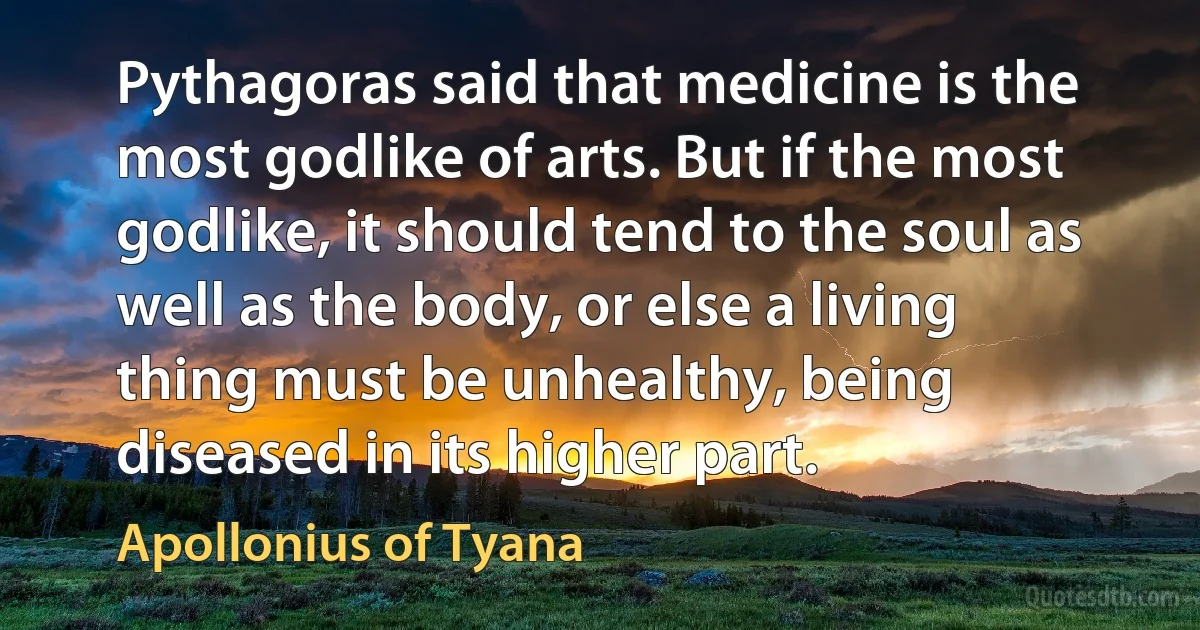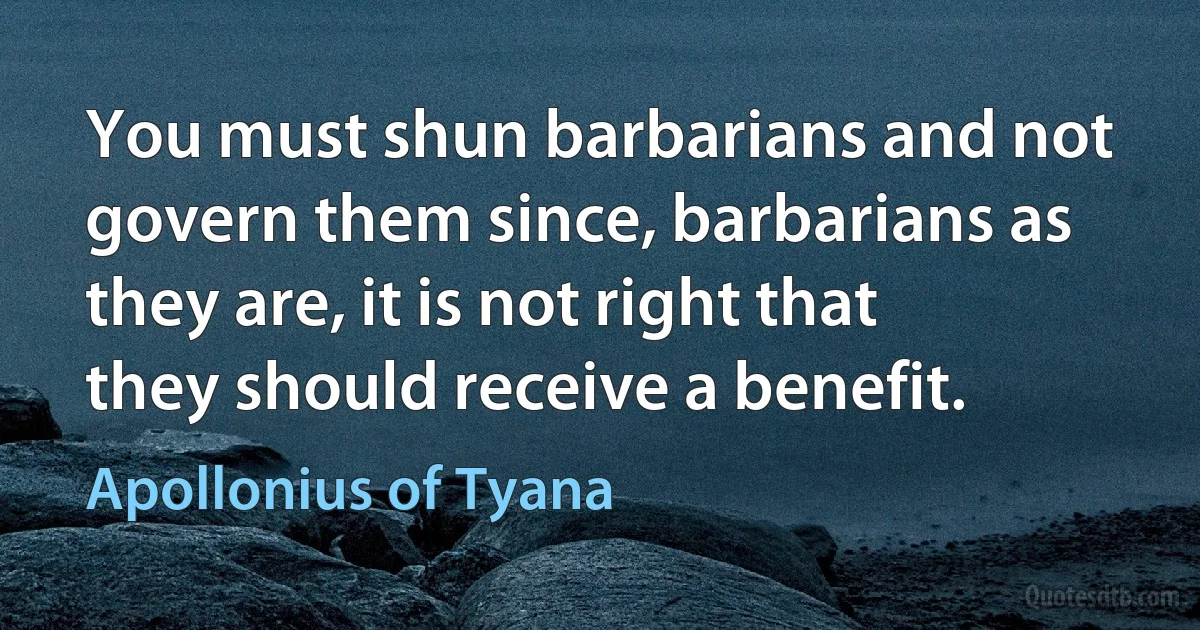Apollonius of Tyana quotes
[Some] disobey the earth and sharpen knives against the animals to gain clothing and food. The Indian Brahmans disapproved of this personally and taught the Naked Philosophers of Egypt to disapprove of it too. From there Pythagoras, who was the first Greek to associate with Egyptians, borrowed the principle. He let the earth keep living creatures, but held that what the earth grows is pure, and so lived off that because it was sufficient to feed body and soul. Clothing made from dead creatures, which most people wear, he considered impure; he dressed in linen and, for the same reason, made his shoes of plaited bark. He derived many advantages from this purity, above all that of perceiving his own soul.

Apollonius of Tyana


